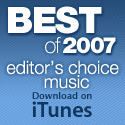One of the main reasons that I invited my online friend Ron Moorby to contribute to this blog is because I wanted his take on British blues. I have been a fan of British blues since I started listening to music, but I kind of chuckle because I came to it in the opposite direction from must American music fans.
Many, not all, but a lot of blues fans first heard the British blues and then back tracked their way to the classic bluesmen and then maybe to the modern blues musicians. I was hearing the blues in Louisiana, being played by the classic bluesmen in the sixties and seventies when I first started paying attention to music.
I was surprised to find out that there were blues musicians from other countries who had mastered the blues. I remember hearing John Mayall and the Blues Breakers and thinking, Wow, those guys are good.
And now I keep digging deeper and deeper into the British blues scene learning more and more about the history of the blues in the UK.
According to Wikipedia;
The British blues is a type of blues music that originated in the late 1950s. American blues musicians like B.B. King and Howlin' Wolf were massively popular in Britain at the time. Muddy Waters is said to have been the first electric blues player to have performed in front of British audiences circa 1959, and others like Sonny Boy Williamson, Bo Diddley and Chuck Berry followed him. British teens began playing the blues, imitating various styles of American blues. Gradually, a new distinctly British sound arose by the mid-1960s, called Beat. This form of the blues, and various derivatives, became massively popular in the US, leading to the British Invasion and British R&B.
The scene coalesced around two figures, Alexis Korner and Cyril Davies, who started a blues club in London’s Soho, The London Blues and Barrelhouse Club, at a time when many American blues artists were also playing in London. The Marquee Club was also central to the 'scene', and a popular place for bands to play. Skiffle had run its course, and some musicians were seeking the real American roots music.
Strange Brew: Eric Clapton and the British Blues Boom

It looks at the British blues explosion by focusing on three guitarists: Peter Green, Mick Taylor, and especially Eric Clapton. Describing the groups they played in from 1965 to 1970, including John’s Mayall’s Bluesbreakers, Cream, Fleetwood Mac, Blind Faith, and The Rolling Stones, the book is presented in an engaging day-by-day format. With many illustrations and never-before-published details, the book reveals the way the musicians behind the blues boom worked together, influenced each other, and pushed one another to ever greater achievements.
Some of my favorite British blues musicians
The Animals
Jeff Beck
Eric Clapton
Cream
Fleetwood Mac
Humble Pie
John Lennon
John Mayall
Gary Moore
Peter Green
Paul Jones
Alexis Korner
Led Zeppelin
Manfred Mann
Steve Marriott
Jimmy Page
The Rolling Stones
Savoy Brown
Jeremy Spencer
Ten Years After
The Who
The Yardbirds
The Pretty Things
Jethro Tull
Black Sabbath















2 comments:
I guess my father introduced me to the blues. He used to play this record called Mr. 5X5 by Jimmy Rushing, all the time. Man that guy had a voice! Then I discovered Chicago blues, and soon after, I heard early Wolf, Ike Turner and that incredible Sun Records Memphis sound, and then Clifton Chenier and swamp boogie on the accordion, and then Leadbelly and Sonny Terry and Brownie McGhee, Sonny Boy Williamson (both of them), Big Joe Williams, and on it went.
I didn't know much about British blues at all, and still I don't know all that much. When I thought about guys like Eric Clapton, or Van Morrison, I thought of it as rock and roll.
So, OK, I'm ready for some education...
i'm glad that i am enamored with this kind of music.
Post a Comment